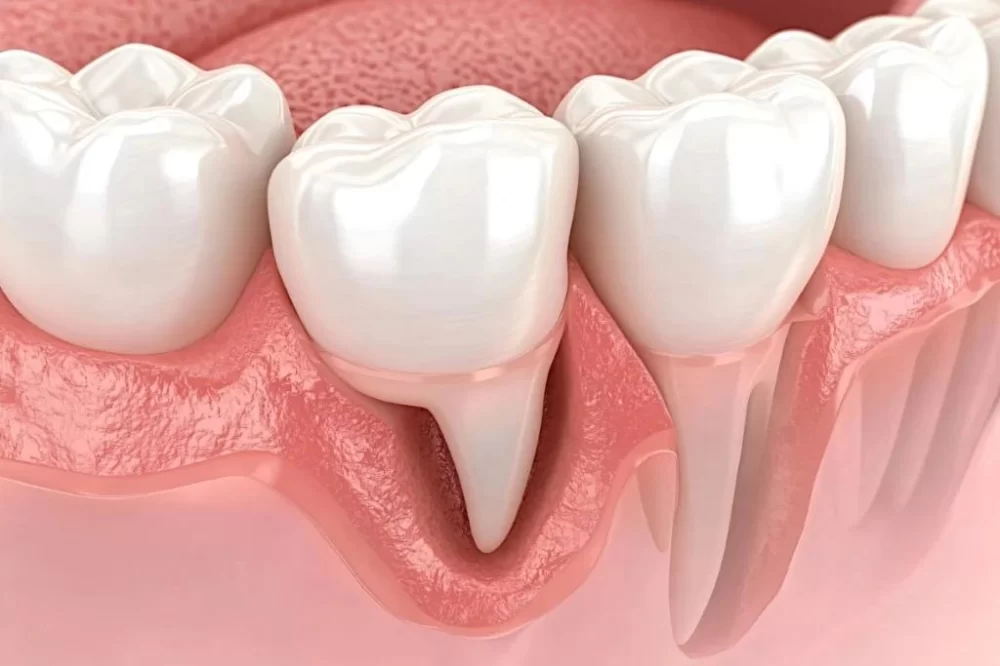
How Does Untreated Gum Disease Affect Your Teeth? Exploring the Risks and Consequences
- 1. What Is Gum Disease?
- 2. Recognizing the Signs of Gum Disease
- 3. The Impact of Untreated Gum Disease on Your Teeth
- 4. How to Prevent Gum Disease and Protect Your Teeth
1. What Is Gum Disease?
Gum disease, also known as periodontal disease, is an infection of the tissues that surround and support your teeth. It starts with plaque buildup on the teeth, which, if not removed by proper oral hygiene, can lead to the inflammation of the gums. In its early stages, gum disease is called gingivitis, which is characterized by red, swollen gums that may bleed when brushing or flossing. If left untreated, gingivitis can progress to periodontitis, a more serious form of gum disease that can lead to tooth loss.
2. Recognizing the Signs of Gum Disease
Gum disease can develop gradually, and its symptoms may not always be immediately noticeable. However, common signs include:
- Red, swollen gums
- Gums that bleed easily, especially when brushing or flossing
- Bad breath or a bad taste in the mouth
- Receding gums, or teeth that appear longer than usual
- Loose teeth or a change in the way your teeth fit together when you bite
If you notice any of these signs, it's important to consult a dentist as soon as possible to prevent further complications.
3. The Impact of Untreated Gum Disease on Your Teeth
Untreated gum disease can have serious consequences for your oral health, particularly your teeth. Here's how it can affect them:
3.1. Tooth Loss
If gum disease progresses to periodontitis, the infection can damage the tissues and bone that support your teeth. As the gums recede and the bone erodes, teeth become loose and may eventually fall out. This is one of the most severe outcomes of untreated gum disease.
3.2. Gum Recession
As the disease progresses, it can cause gum recession. This exposes more of the tooth’s surface, increasing the risk of decay and sensitivity. Gum recession is also often a sign of deep gum infection, which can lead to more severe dental issues over time.
3.3. Increased Risk of Other Health Conditions
Research has shown that untreated gum disease may increase the risk of other serious health conditions, such as heart disease, stroke, and diabetes. The inflammation caused by gum disease can contribute to systemic inflammation, affecting the rest of your body.
3.4. Aesthetic Concerns
Beyond the physical health risks, untreated gum disease can lead to aesthetic concerns. As gums recede and teeth become loose or even fall out, your smile may lose its appeal. This can affect self-confidence and overall quality of life.
4. How to Prevent Gum Disease and Protect Your Teeth
The good news is that gum disease is largely preventable with proper oral hygiene practices. Here are some steps you can take to protect your teeth and gums:
4.1. Brush and Floss Regularly
Brushing your teeth twice a day with fluoride toothpaste and flossing daily are essential habits in preventing gum disease. These practices help remove plaque, the main cause of gum disease, from your teeth and gums.
4.2. Visit Your Dentist Regularly
Regular dental checkups are crucial for early detection of gum disease. Your dentist can perform a thorough examination and cleaning to remove any plaque or tartar buildup that may lead to gum disease.
4.3. Quit Smoking
Smoking is a major risk factor for gum disease, as it weakens your immune system and makes it harder for your gums to heal. Quitting smoking can significantly reduce your risk of developing gum disease.
4.4. Eat a Balanced Diet
A healthy diet rich in vitamins and minerals, particularly vitamin C, can help support gum health and prevent inflammation. Avoid excessive sugar and processed foods, as they can contribute to plaque buildup.







 Westgate Dental Arts
Westgate Dental Arts Coventry Family Dental
Coventry Family Dental Familia Dental
Familia Dental Dr. Daniel S. Fife, DDS
Dr. Daniel S. Fife, DDS Dentistry At Suburban Square: Michael I. Wollock, DMD
Dentistry At Suburban Square: Michael I. Wollock, DMD Comfort Care Dental
Comfort Care Dental The Importance of Oral Health Education During Pregnancy for a Healthy Pregnancy
The Importance of Oral Health Education During Pregnancy for a Healthy Pregnancy Why Skipping Dental Checkups Can Lead to Bigger Oral Health Problems
Why Skipping Dental Checkups Can Lead to Bigger Oral Health Problems Best Tips for Brushing Your Teeth Properly for Healthy Gums: Essential Techniques for Oral Health
Best Tips for Brushing Your Teeth Properly for Healthy Gums: Essential Techniques for Oral Health Advantages of Porcelain Dental Restorations
Advantages of Porcelain Dental Restorations How Can Diabetes Cause Tooth and Gum Problems? Preventing and Managing Oral Health Issues
How Can Diabetes Cause Tooth and Gum Problems? Preventing and Managing Oral Health Issues Healthy Habits for Promoting Good Oral Health and Hygiene: Tips for a Healthy Smile
Healthy Habits for Promoting Good Oral Health and Hygiene: Tips for a Healthy Smile